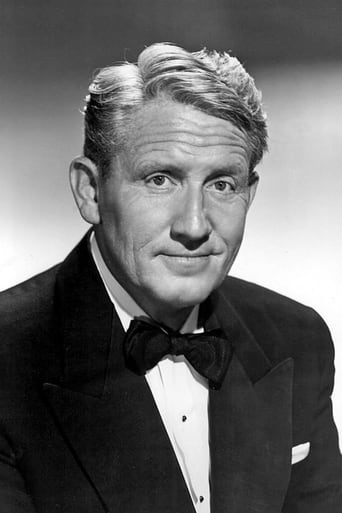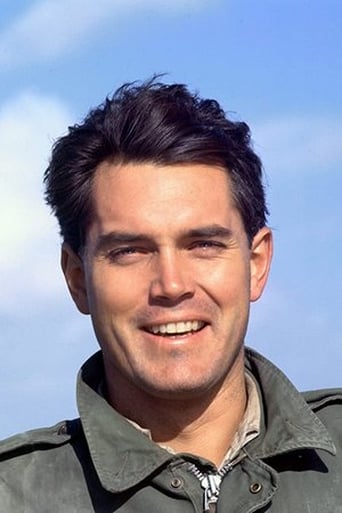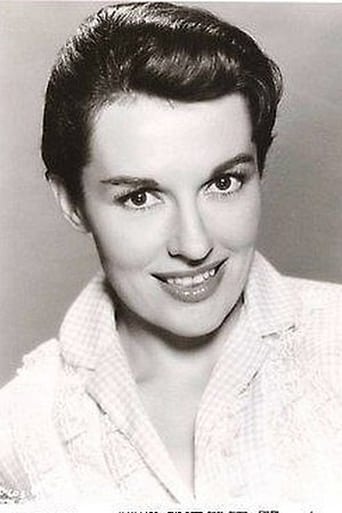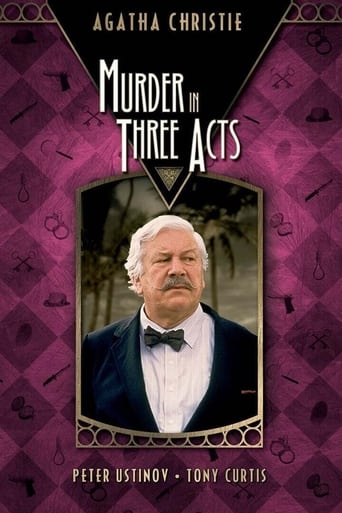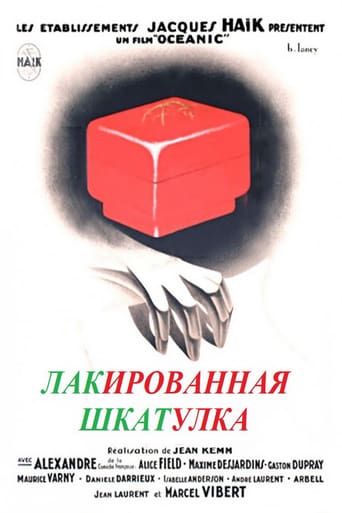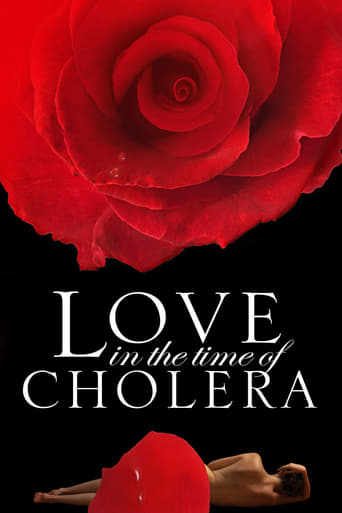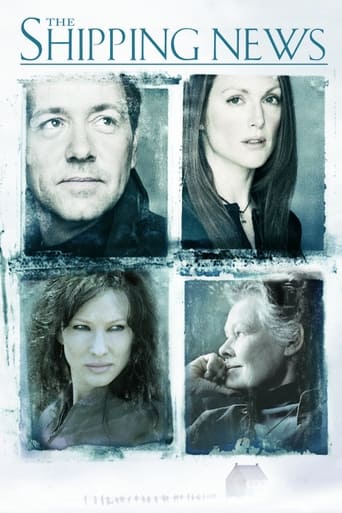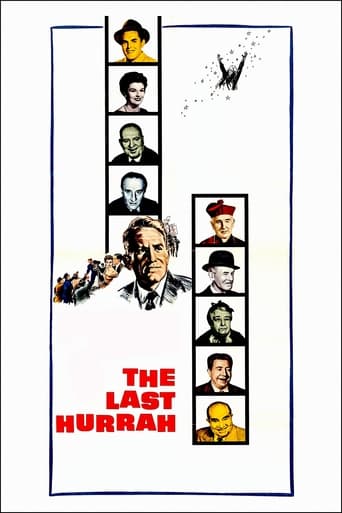
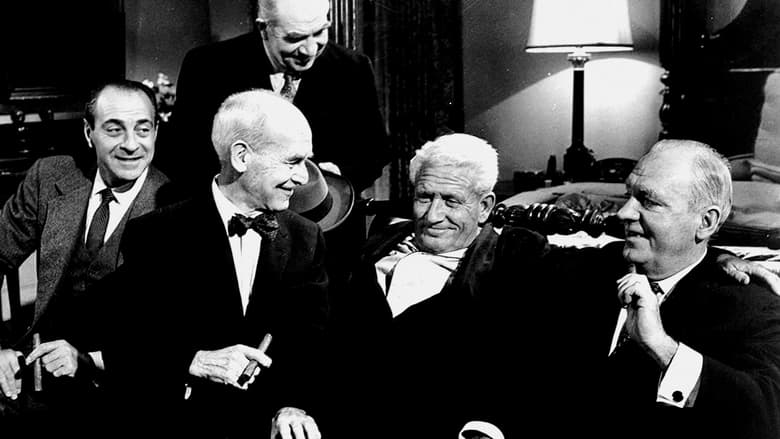
The Last Hurrah (1958)
In a changing world where television has become the main source of information, Adam Caulfield, a young sports journalist, witnesses how his uncle, Frank Skeffington, a veteran and honest politician, mayor of a New England town, tries to be reelected while bankers and captains of industry conspire in the shadows to place a weak and manageable candidate in the city hall.
Watch Trailer
Cast
Similar titles
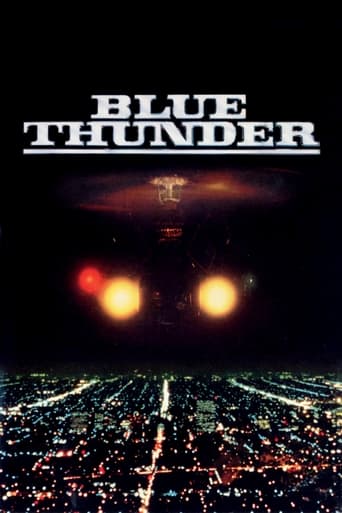
Reviews
The film makes a home in your brain and the only cure is to see it again.
This is one of the few movies I've ever seen where the whole audience broke into spontaneous, loud applause a third of the way in.
There is, somehow, an interesting story here, as well as some good acting. There are also some good scenes
Although I seem to have had higher expectations than I thought, the movie is super entertaining.
"The Last Hurrah" is John Ford's fine film about Frank Skeffington's fifth and final attempt to win the mayoralty of "a New England City". The story is loosely based on the life and times of former Boston mayor James Curley. Although Boston isn't identified per se, several discreet references are made to it throughout the film.Spencer Tracy heads up a large cast which includes many familiar faces from the 1930s as well as, members of the John Ford stock company. Tracy dominates the proceedings as we follow him through his fifth campaign to be elected mayor. Along the way we see his modus operandi as he greets his constituents, attends a wake, confronts his political enemies and deals with his personal problems as they arise.Skeffington draws his nephew Adam Caulfield (Jeffrey Hunter) into his circle with the apparent goal of eventually passing the torch to him. He treats Caulfield like the son he wishes he had rather than his actual son playboy Frank Skeffington Jr. (Arthur Walsh). Caulfield is married to the daughter (Dianne Foster) of his long time opponent Roget Sugrue (Willis Boucher) with whom there is no love lost.Banker Norman Cass (Basil Rathbone) and newspaper editor Amos Force (John Carradine)team up to block Skeffington's re-election. They put up their money and their own candidate Kevin McClusky (Charles B. Fitzsimmons - Maureen O'Hara's brother) to run against him.On Skeffington's team are secretary Dan Herlihy (William Leslie, his personal assistant Winslow (Carleton Young) and his "back room boys" Gorman (Pat O'Brien), Weinberg (Ricardo Cortez), Gillen (James Gleason) and gofer Ditto Boland (James Brophy).Others in the rather large cast include Donald Crisp as Cardinal Burke, Ken Curtis as Monseignor Killian, Basil Ruysdael as Bishop Gardner, Wallace Ford as mayoralty candidate Hennessy and Frank McHugh as Festus Garvey another opponent.As always Ford injects some humor into the story. There is a hilarious encounter at a wake between Hunter and Ford favorite Jane Darwell. Also the scene where Skeffington anoints Norman Cass Jr. (O. Z. Whitehead) as Fire Commissioner is hilarious. Look for Ford perennial stock company members Anna Lee and Jack Pennick, as well as Bob Sweeney and Richard Deacon in other parts.I have to take issue with the characterization of the Kevin McClusky character. Ford makes him such a buffoon that it's unfathomable that such a person could be elected mayor of "a New England city".Spencer Tracy as always, makes this film well worth watching.
I'd been looking forward to this for a long time. I'm a fan of John Ford and he's given me some of my favorite films.I'll have to confess that "The Last Hurrah" disappointed me in many ways. The acting, particularly Spenser Tracy's was wonderful throughout. Ford's stable of stalwarts made the film glisten with their bit roles and backup. It was Tracy's film, though, and he's a virtuoso whichever way you view it.It's very much a black and white film - and I'm not referring to the color. There are the could guys and then the bad guys, with absolutely no subtlety at all. The good guys were the Irish who made it up the ladder through honest (?) hard work while the bad guys had English accents and inherited their wealth. Just think Basil Rathbone or John Carradine and you get the picture. The rival candidate to Tracy is an undisguised idiot with a hilarious but ridiculous "interview" on television including a barking dog and a wife who can't read. These are very, very broad lines.I can't help thinking about Frank Capra's descriptions of the other side, the "baddies" in such films as "Mr. Deeds" or "It's a Wonderful Life" There is absolutely no subtlety whatsoever. These people were educated and reared in wealthy families and should be punished. This is a very rural and dangerous flaw in the American personality that found its way in this film. But this time, they have English ACCENTS. John Ford has never been at ease with the English people in general. Sometimes, it borders on intense dislike or even hatred, and it's everywhere to be seen in this film. The protracted death-bed scene was so over-done and over-long it was embarrassing to watch. Just a-tuggin' at the old heartstrings. Cardiac arrest might be a more appropriate term. Ford didn't know when to stop. It's as plain and simple as that.Curtis Stotlar
Tracy plays Irish-American Frank Skeffington, an old hand re-seeking political office for one last time, with dreams of helping the slums along, and, along with his cronies, leading the victory parade on St Patrick's Day. Will he make it? 'The Last Hurrah' is a tour-de-force, with John Ford's sharp direction, and several old timers making an appearance, such as Basil Rathbone as one of Tracy's more vehement opponents. Tracy of course is as excellent as ever, and there are some nice scenes between him and Jeffrey Hunter (playing his nephew).Whether showcasing the camaraderie between Skeffington and his supporters, or giving the viewer a masterclass in acting, 'The Last Hurrah' cannot really be faulted. Even if the last half-hour of the film is a bit cloying, Tracy's last line is on target and raises a smile as the end card comes up.Incidentally, this film was made in 1958, a time when black and white films mixed with those in colour to no-one's detriment. It would be interesting to see if a similar subject would come across as well today, in colour. It makes one long for the return of black and white for some genres.
Why is this film not great? All the elements for a masterpiece are in place: the stock company, Frank Nugent manning the screenplay, the Irish milieu and the most Fordian line ever - "there's only one way to describe the candidate, and that is that he was victorious in defeat". So Wha'happen? This is a mediocre film that should nonetheless be analyzed shot by shot. The last hurrah is Ford's, not Skeffington's and I wish I was enough of a theorist to go into every detail of how that becomes obvious over the course of the film. I once heard that the film critic Serge Daney said something to the effect that every film is a documentary of its own creation, and that is so true here. The sight of John Carradine alone evokes a whole world and life: the seven films of Ford's he participated in in the thirties; the fact that he hadn't been seen in one in almost 20 years. His scenes are a meditation on the ineffable quality known as "stardom": for all his sepulchral presence, he can't hold a screen the way Spencer Tracy can, and their moments together are a battle between the magnificent character actor who has never and will never rise above that status (except when he's with Edgar G. Ulmer, naturally) and the star. Ford understands all of this - all of this and more. What is being mourned - and, make no mistake, it's being mourned way before Skeffington's actual death - in this film? Is it the death of a man or of a way of life? The way Skeffington ritually changes the flowers under his dead wife's portrait daily tells us that these people are already in mourning for themselves. The wake scene for the nondescript ne'er - do - well seems disproportionally long, but as the film progresses, you understand that it functions as a foreshadowing of the film's central ritual. All this is great. But making all the sons into buffoons is a cheap, knee-jerk statement on the generation which is replacing these dinosaurs, and it is impossible to get a sense of how McCluskey's manipulation of the media (this, of course, represents "the modern world") leads to his victory, given the fact that the one time we see him on TV he seems like a totally unlovable clown. Was Ford going for Nixon's Checkers speech here? Nixon's nervousness and uncomfortableness read to many as a form of "truth", and his "we're not giving up that dog no matter what anyone says" read as a particularly bumbling form of honesty. Ford should have at least shown us that. This way, the deck is so stacked that it's impossible to care. Andrew Sarris was right: Sturges (director of The Great McGinty) shoulda taken this one.
